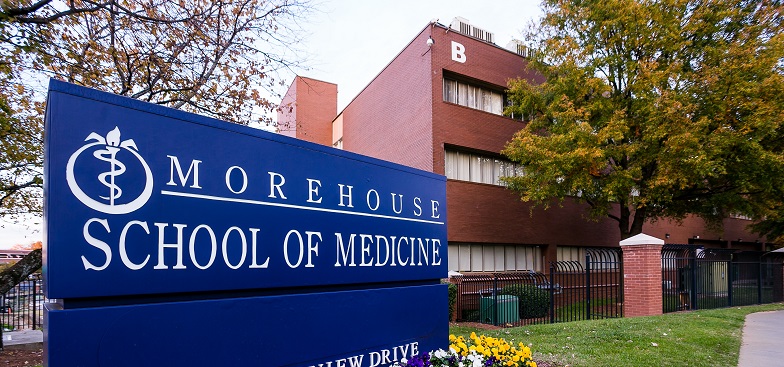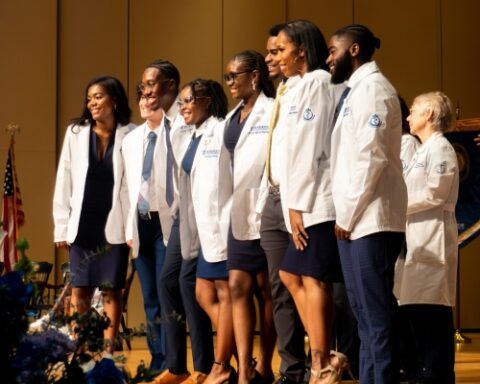Courtesy of Morehouse School of Medicine
Morehouse School of Medicine (MSM) and 100 Black Men of Atlanta, Inc. will bring together community leaders, public health experts, elected officials, law enforcement personnel and civil rights organizations to discuss violence prevention efforts on Wednesday, September 18 from 9 a.m. to 4 p.m. on the MSM campus. The exclusive invitation-only roundtable discussion will serve as a pre-symposium before a larger event in 2025.
“Gun violence is a public health issue and remains a leading cause of death among U.S. adolescents, disproportionately affecting Black males,” said Sandra Harris-Hooker, PhD, MSM Senior Vice President for External Affairs and Innovation. “Morehouse School of Medicine’s commitment to health equity and health justice is one of the reasons we are taking a leadership role, working with community partners to create solutions and help save lives beyond the walls of a healthcare provider’s exam room.”
The pre-symposium’s objectives are to review data tools that provide detailed statistics on current trends in lethal violence; identify key points of concern; explore innovative strategies for preventing lethal violence, including increased mental health awareness and suicide prevention; and create collaborative initiatives and action plans with measurable results in reducing deaths.
“The anti-gun violence committee serves as a vital force for change, uniting voices to advocate for safer communities,” said Sidney Barron, Chairman of 100 Black Men of Atlanta, Inc. “Their efforts inspire legislation, foster awareness and create a collective movement aimed at breaking the cycle of violence, demonstrating that together we can build a future where safety and peace in our communities are paramount.”
The urgent issue of violence prevention, particularly youth violence, is one that both MSM and 100 Black Men of Atlanta have worked to address for decades. This has included direct outreach to and collaboration with students from Atlanta-area schools at the K-12 and college and university levels.
In conjunction with the meeting, the Health Equity Tracker created by the Satcher Health Leadership Institute at Morehouse School of Medicine is releasing five new explorable data topics surrounding gun-involved deaths, including homicides, suicides, youth-involved deaths and intersectional outcomes including homicides of Black men. The tracker, created in partnership with Google.org, is a free-to-use online platform promoting health justice and data equity. It reveals health outcome disparities across U.S. communities down to the county and territory level through interactive visualizations, empowering users to explore health inequities and advocate for improved outcomes in their communities. Topics can be stratified multiple ways including race, sex at birth, age and metro/non-metro population density. The data is available nationally and at the state level and shows how the disparate rates have improved or worsened over the last two decades.





